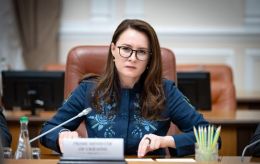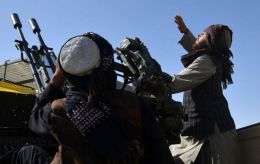Life in Russia's Sudzha under Ukrainian control: What locals say about war and Putin
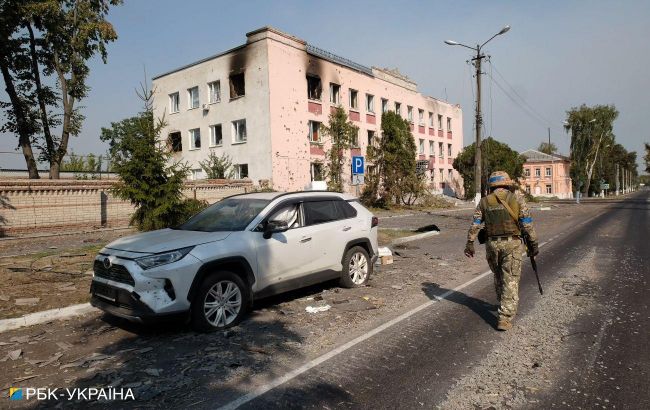 Ukrainian soldier in Sudzha (photo: RBC-Ukraine)
Ukrainian soldier in Sudzha (photo: RBC-Ukraine)
The Russian town of Sudzha has been under the control of the Ukrainian military for two weeks now. RBC-Ukraine's report from Sudzha shows what the locals think about Russia's war against Ukraine, the Ukrainian army, and Vladimir Putin.
Two weeks ago, the Ukrainian Armed Forces launched an operation in the Kursk region. This came as a complete surprise to both the Russians and the rest of the world, especially given the fact that the situation at the front is quite difficult. The operation was kept in the strictest confidence until the last moment, as were its goals.
The Ukrainian Armed Forces advanced quite quickly through the region, immediately occupying several villages and small towns, one of which was Sudzha. The Kremlin was frankly delayed and failed to formalize its official position in time, so local authorities either announced evacuations or claimed that they were not necessary, talked about humanitarian corridors that did not exist, and complained about the brutality of the Ukrainian military, releasing materials to the media with their soldiers. A large number of people left Suzha immediately, and the residents who stayed there now, paradoxically, rely only on the help of the Ukrainian army.
Borderlands
After Sudzha became a relatively safe place to visit, journalists accompanied by the Ukrainian military were the first to go there after the military. We were taken to the Russian border town on August 21.
The road to Sudzha goes through Sumy, where we are met by the Ukrainian military. One of them, a press officer of one of the operational and tactical groups, gathers the correspondents around him and gives a quick briefing. Nothing new - we are not allowed to film the equipment, the road, or the military. During the conversation, questions arise, and they are mostly about the locals - how many of them there are, what their condition is, and what they say about what is happening.
- We plan to give them a little education. It's not that they treat us badly, but let's just say they don't understand what's going on. So we will show them.
Today, the Ukrainian military is planning to hold a kind of movie screening for the residents of Sudzha who stayed in the city. For this purpose, they are bringing to the city the documentary film “On the Other Side,” in which Ukrainians tell about the horrors of the Russian occupation. The hope is that the comparative parallels will be impossible to ignore.
Before being sent to Russian territory, the journalists were divided into two parts and put into armored vehicles. These are big machines covered with thick armor, and inside there is a real bathhouse. We ride in a small cabin opposite each other and pass around a pack of wet napkins until the air conditioning starts working in the car.
Several soldiers are traveling with us, one of them, a man with the call sign Lys (Fox in Ukrainian - ed.) is lying half-laying on a pile of backpacks and jackets. We ask him why he's called Lys, and he squints slyly, then leans back and closes his eyes. At some point, the car makes a peculiar hum, and Lys abruptly opens his eyes and sits up.
- So, was there an airplane just now? An airplane?
A young guy with the call sign Mars looks at him, smiles, and says: “No, don't worry, not an airplane. It's just a rocket.”
In this position, we drive for about an hour and then stop at a border checkpoint. It's shot through, there are holes in the houses with broken windows along the roads, and 20 meters away, there is a green iron arch melting in the heat. It says Russia.
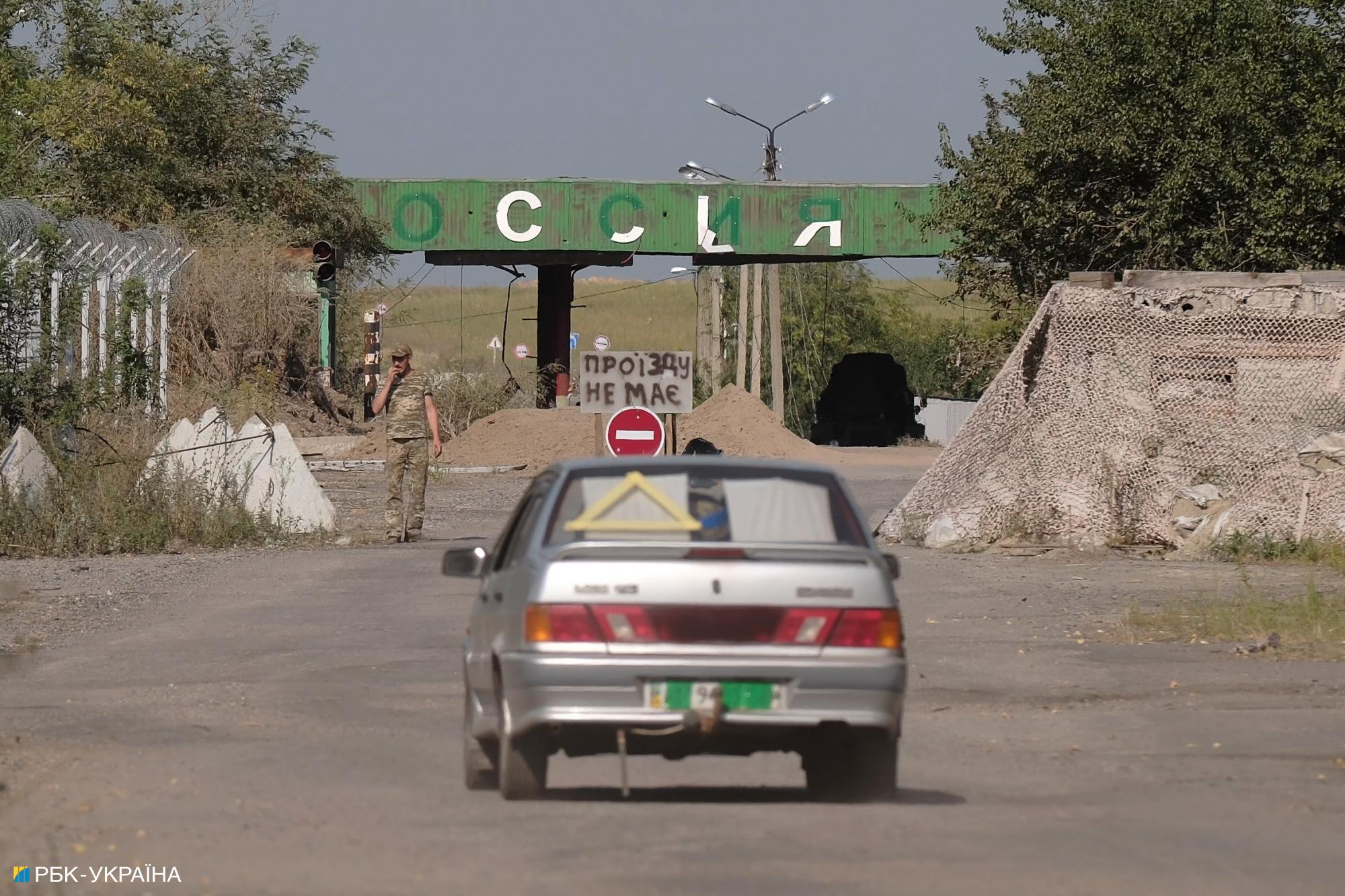
Empty Sudzha and abandoned Russians
If you don't know that you've crossed the border between Ukraine and Russia, Sudzha looks no different from any other Ukrainian border small town with gray brick houses that have already dried up from the scorching August sun. We quickly leave the armored vehicles and walk around the main square, crowned by the district center building and a pedestal with the inscription Lenin below it.
The square is empty, so it seems we are alone in the city for a moment, but this is not the case - a reconnaissance drone is already watching the military and journalists. Its intrusive buzzing resembles a mosquito swarm.
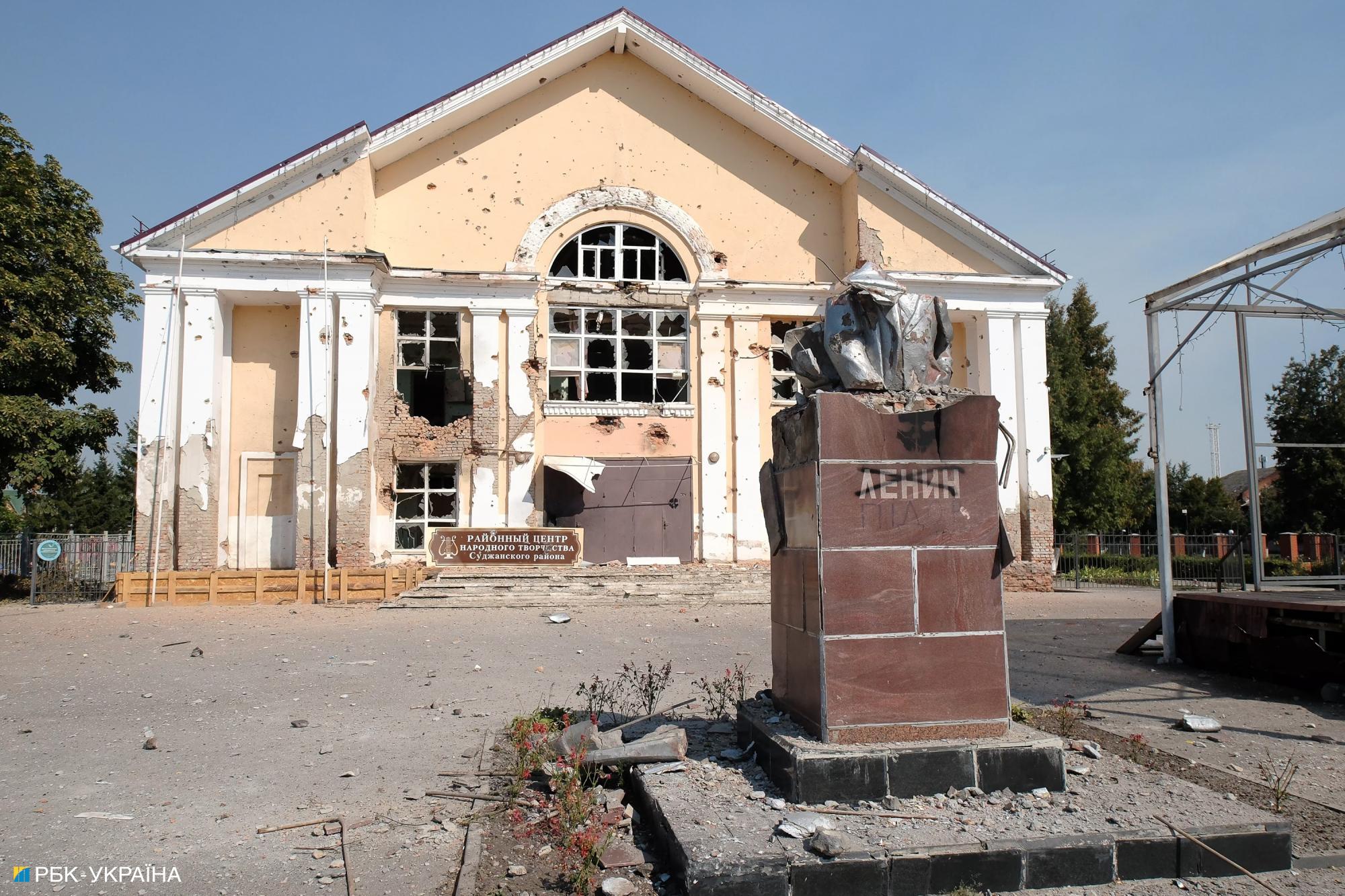 Across the street from the pedestal with the iron piece of Lenin on top, there are shops and a post office building. We peek through the broken door of an optician's shop, where almost all the glasses are on the shelves, and a few boxes are lying on the floor. The next barbershop, which for some reason was called Tiger, is also well preserved. So much so that there are beard gels and a hundred rubles on the reception desk. “The locals don't loot, they mostly take food. And they came to the optician's several times to buy eye drops,” says a Ukrainian soldier who accompanies us.
Across the street from the pedestal with the iron piece of Lenin on top, there are shops and a post office building. We peek through the broken door of an optician's shop, where almost all the glasses are on the shelves, and a few boxes are lying on the floor. The next barbershop, which for some reason was called Tiger, is also well preserved. So much so that there are beard gels and a hundred rubles on the reception desk. “The locals don't loot, they mostly take food. And they came to the optician's several times to buy eye drops,” says a Ukrainian soldier who accompanies us.
Locals can walk around the city, they are not detained or restricted in their movements. Except in time - they can move around until 5-6 p.m. when the shelling starts. When the Ukrainian military first entered the town, the locals were hiding in their houses and later began to come out. But the square is empty - there are practically no grocery stores here, and no one wants to walk.
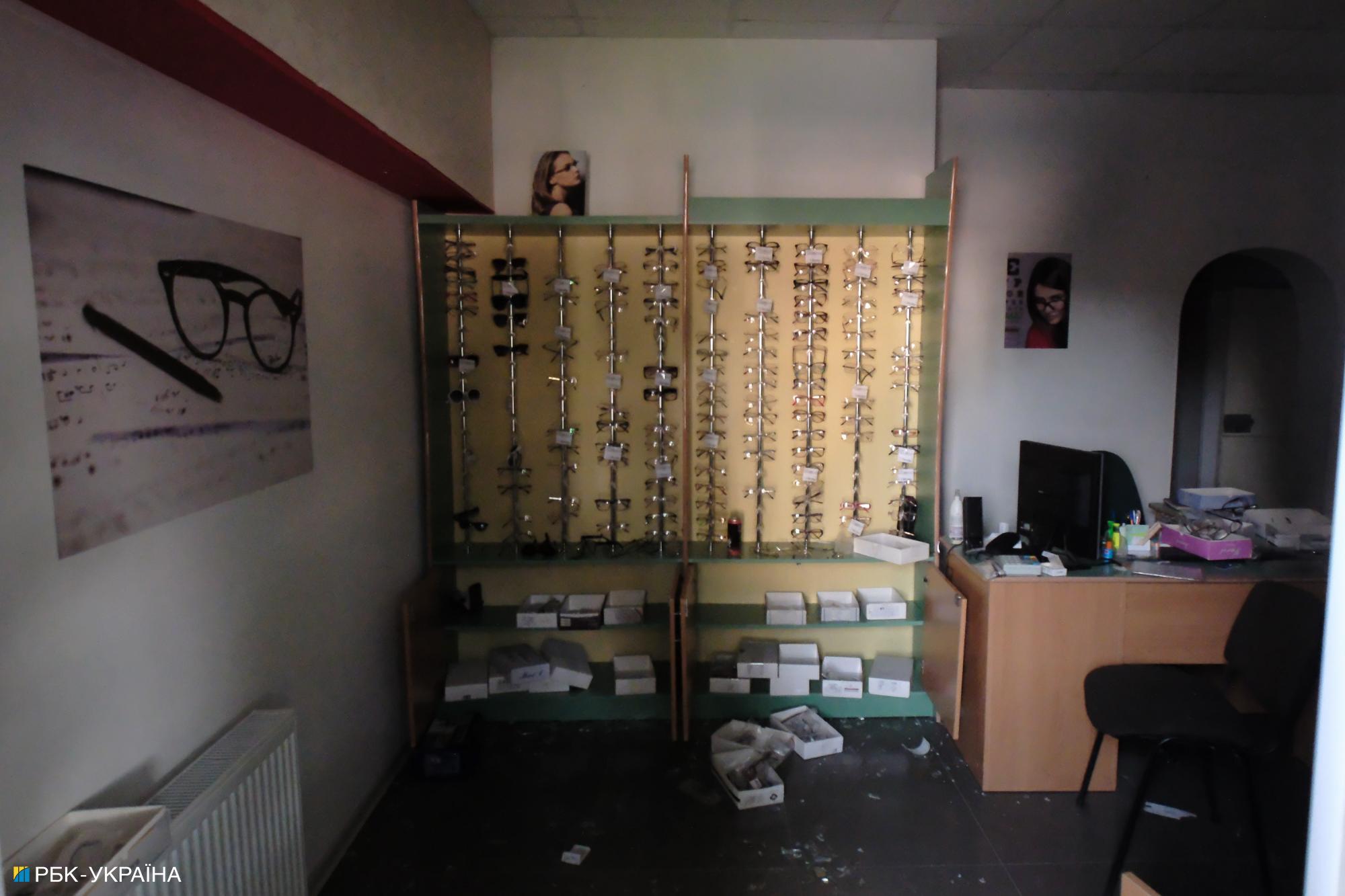 We are led further and asked to move in a tight line, stepping on each other's footsteps - unexploded shells are lying on the roads, and it is dangerous to spread out. We are walking through empty streets, some houses along the road are shelled or burned out, but this picture does not compare to the Ukrainian villages and towns that Russian troops captured. The city seemed to be left in a hurry, firing back on the move.
We are led further and asked to move in a tight line, stepping on each other's footsteps - unexploded shells are lying on the roads, and it is dangerous to spread out. We are walking through empty streets, some houses along the road are shelled or burned out, but this picture does not compare to the Ukrainian villages and towns that Russian troops captured. The city seemed to be left in a hurry, firing back on the move.
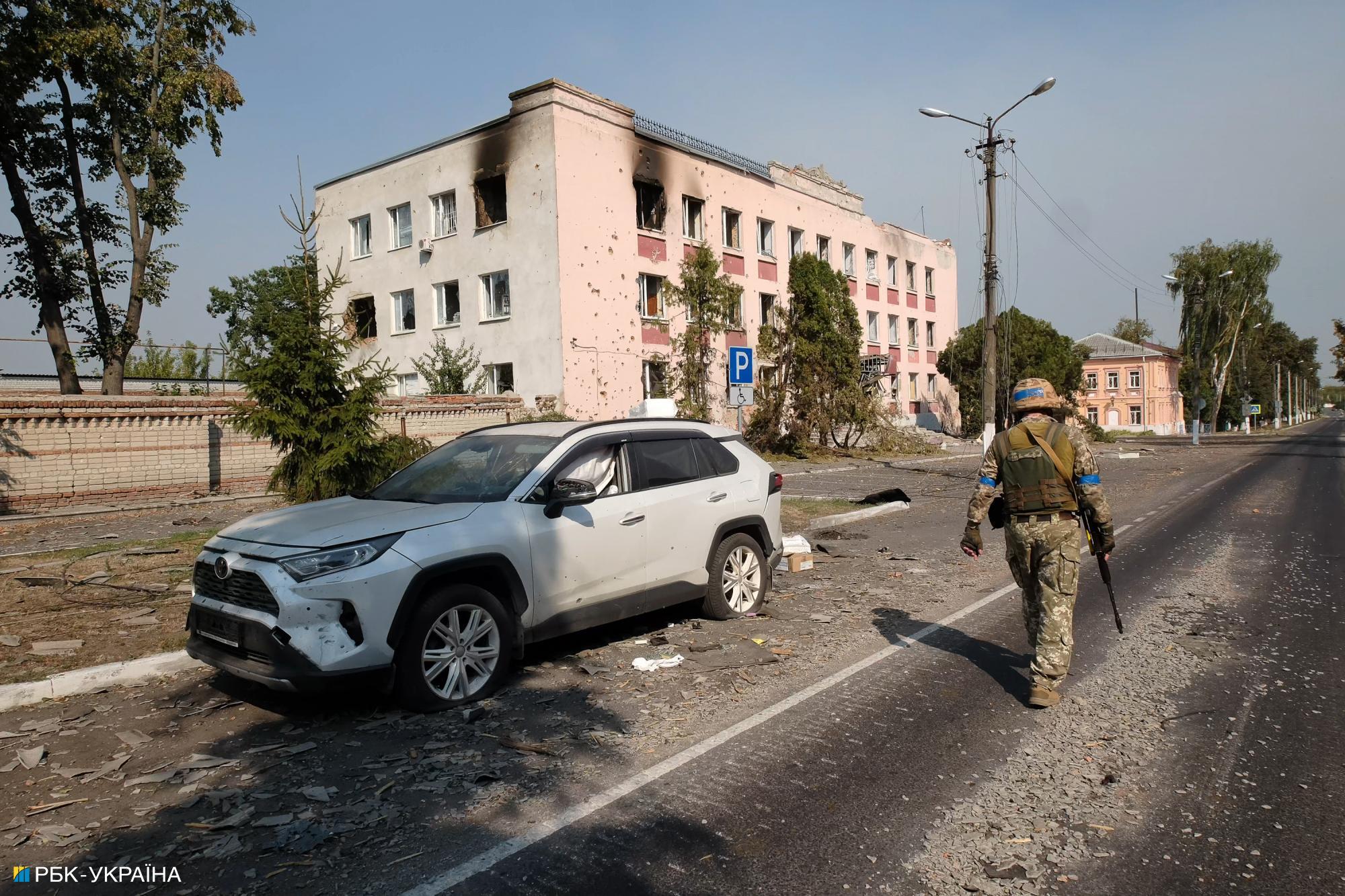
Gathering place in Sudzha
The elderly people in Sudzha most often gather in the building of the boarding school. There is a basement, and over the past two weeks, the facility has turned into a kind of hub - food is delivered here, and people hide from the shelling here. When we enter the porch, several women sitting along the fence stand up and move to the side, where they stand and listen attentively to what we are saying.
A woman who calls herself Nina agrees to talk. She smiles politely and keeps twirling a bottle of water in her hands, which she occasionally uses to cover her face. Today, she buried her grandmother, whose care kept her in Sudzha. When asked if the authorities offered to evacuate, Nina shakes her head.
- What do you think about what is happening?
- It's horrible. I didn't expect this to be possible at all.
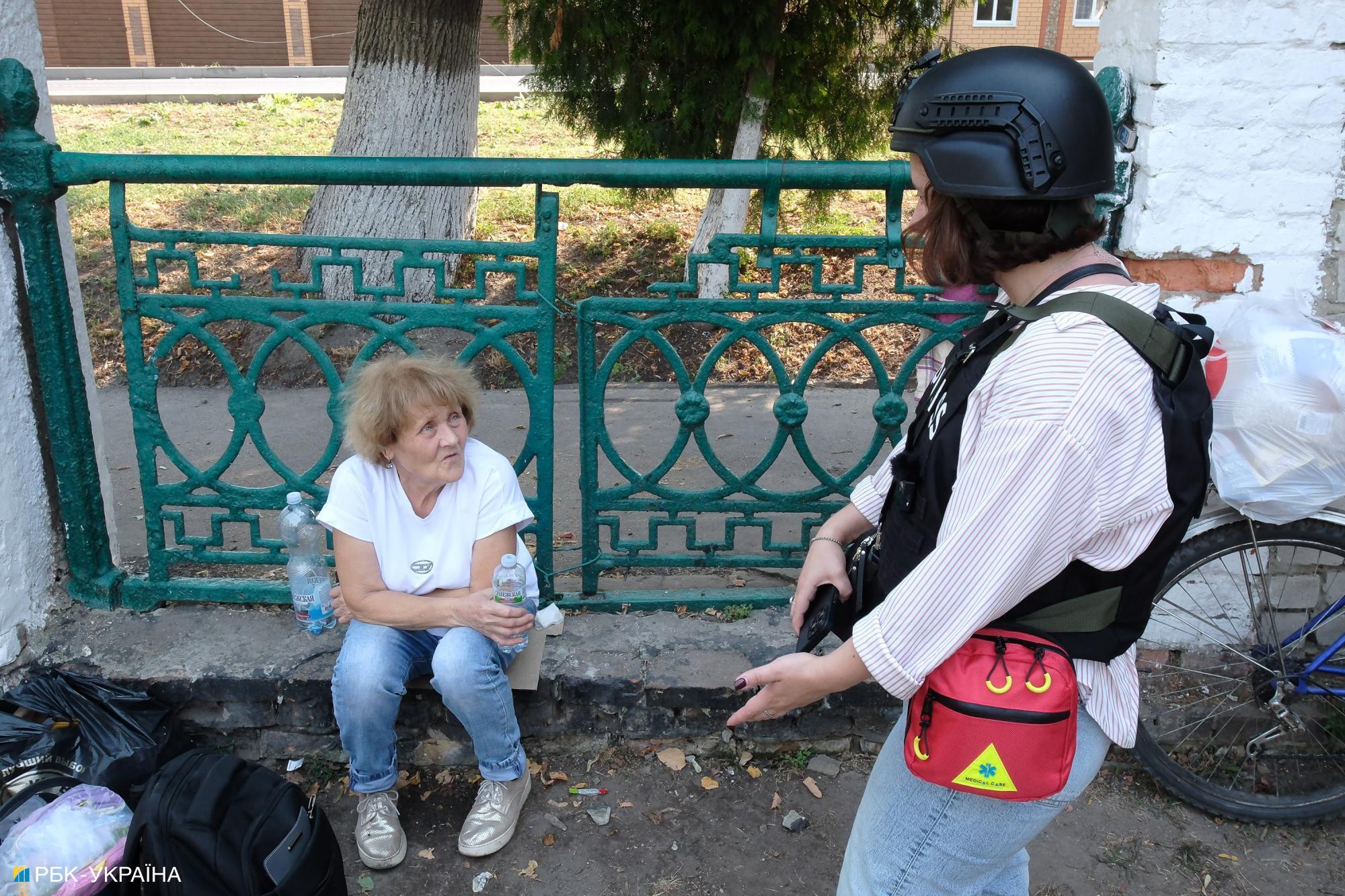 Later, we will hear this answer from almost everyone who agreed to talk. Neither the 2.5 years of the great war, the proximity to the war zone, nor the openly genocidal rhetoric of their government made the locals think that sooner or later, they might suffer. When asked whether the local authorities took care of the residents of Sudzha, Nina shakes her head again, presses the bottle to her forehead, and suddenly begins to praise the Ukrainian military.
Later, we will hear this answer from almost everyone who agreed to talk. Neither the 2.5 years of the great war, the proximity to the war zone, nor the openly genocidal rhetoric of their government made the locals think that sooner or later, they might suffer. When asked whether the local authorities took care of the residents of Sudzha, Nina shakes her head again, presses the bottle to her forehead, and suddenly begins to praise the Ukrainian military.
- I don't have a positive attitude towards the government at all because all their power is for themselves, and no one thinks about the people. It's good that you brought us bread and water to eat. And you let us go shopping and everywhere else. And they (Ukrainian military - ed.) drove us to the shops by car. They are good guys. Very nice guys.
Three elderly women are sitting on the parapet behind the orphanage building. One of them, seeing the journalists, covers her face with a blue towel and awkwardly says that she doesn't look good for an interview today. Her friend immediately starts combing her hair and smiles.
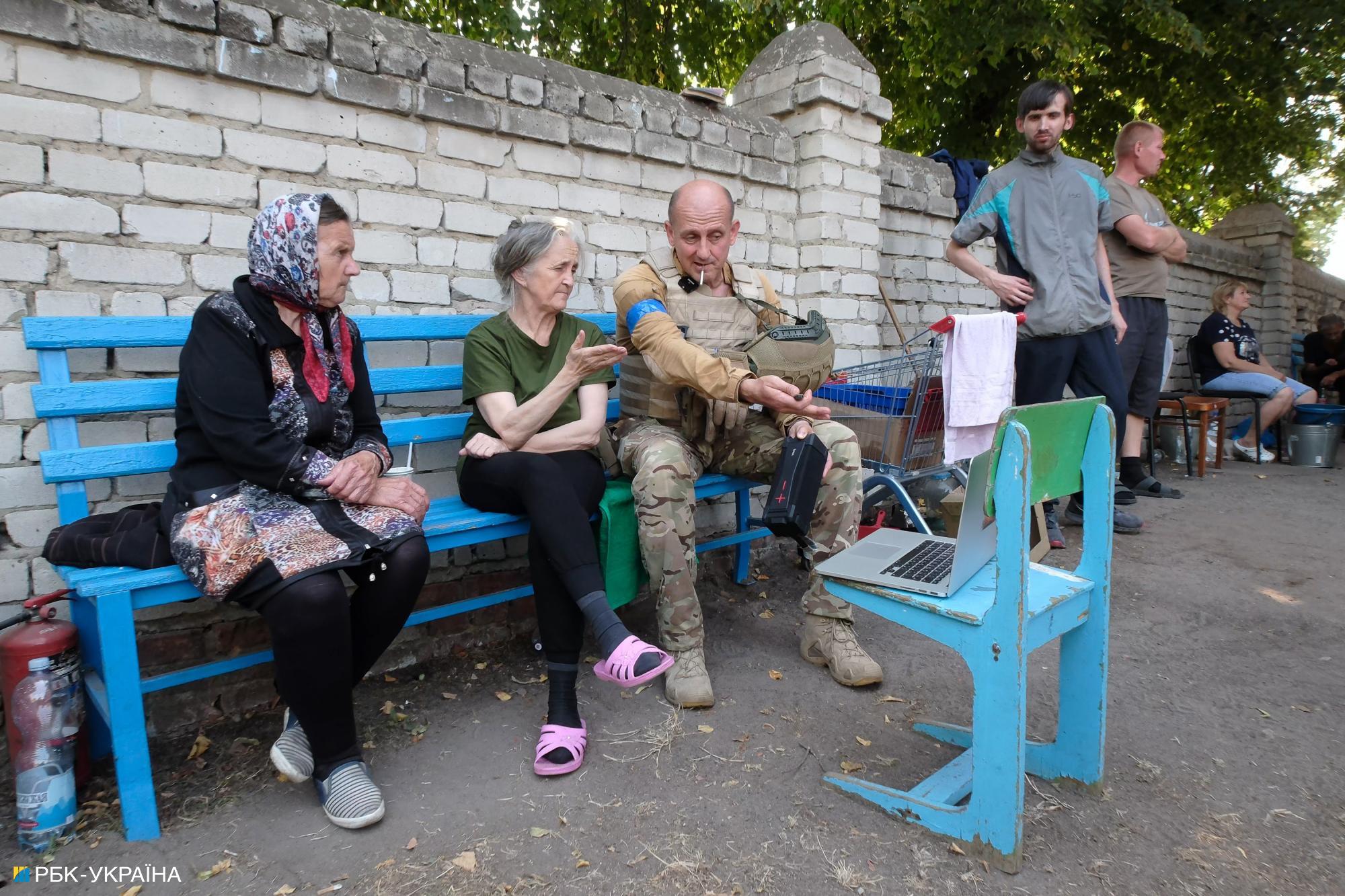 - We are so well off here, thank you for everything. But, of course, in the basements, once you lie down, it's not very convenient to get up.
- We are so well off here, thank you for everything. But, of course, in the basements, once you lie down, it's not very convenient to get up.
The woman introduces herself as Tamara and immediately begins to tell us how hard it was for them in the days before the Ukrainian army entered the city. She and her friends hid in the “white house” - an administrative building. But it was shelled, and the women could not answer who did it. Nadezhda, the one with a towel over her face, tells us how friendly Russia and Ukraine used to be. She mentions her boots as proof of friendship.
- I bought leather boots in Sumy. I wore them for ten years.
- And I studied in Sumy, at vocational school No. 13. I would say it was fine for those times, even great, and I would have stayed there. If I hadn't gotten married.
Tamara, once again combing her hair, shares her painful experience: it is difficult to live in the basement, she has to hide from the shelling, which has become more frequent recently.
- Honestly, I want to tell you this: when this started, I thought it would go away. But the further into the forest, the more firewood there is.
Women do not respond well to questions about who is to blame for everything, why the war happened, and which side they support. They shrug their shoulders, say they are between heaven and earth, and again mention the friendship between Russia and Ukraine. When the question “What do you think about this?” is asked once again, a woman who had been listening to the conversation from afar approaches us slowly, leaning on two sticks. She stands next to us and utters the phrase, “We need peace,” in a tone that suggests that our conversation should be over. Tamara nods vigorously, and Nadezhda starts to cry.
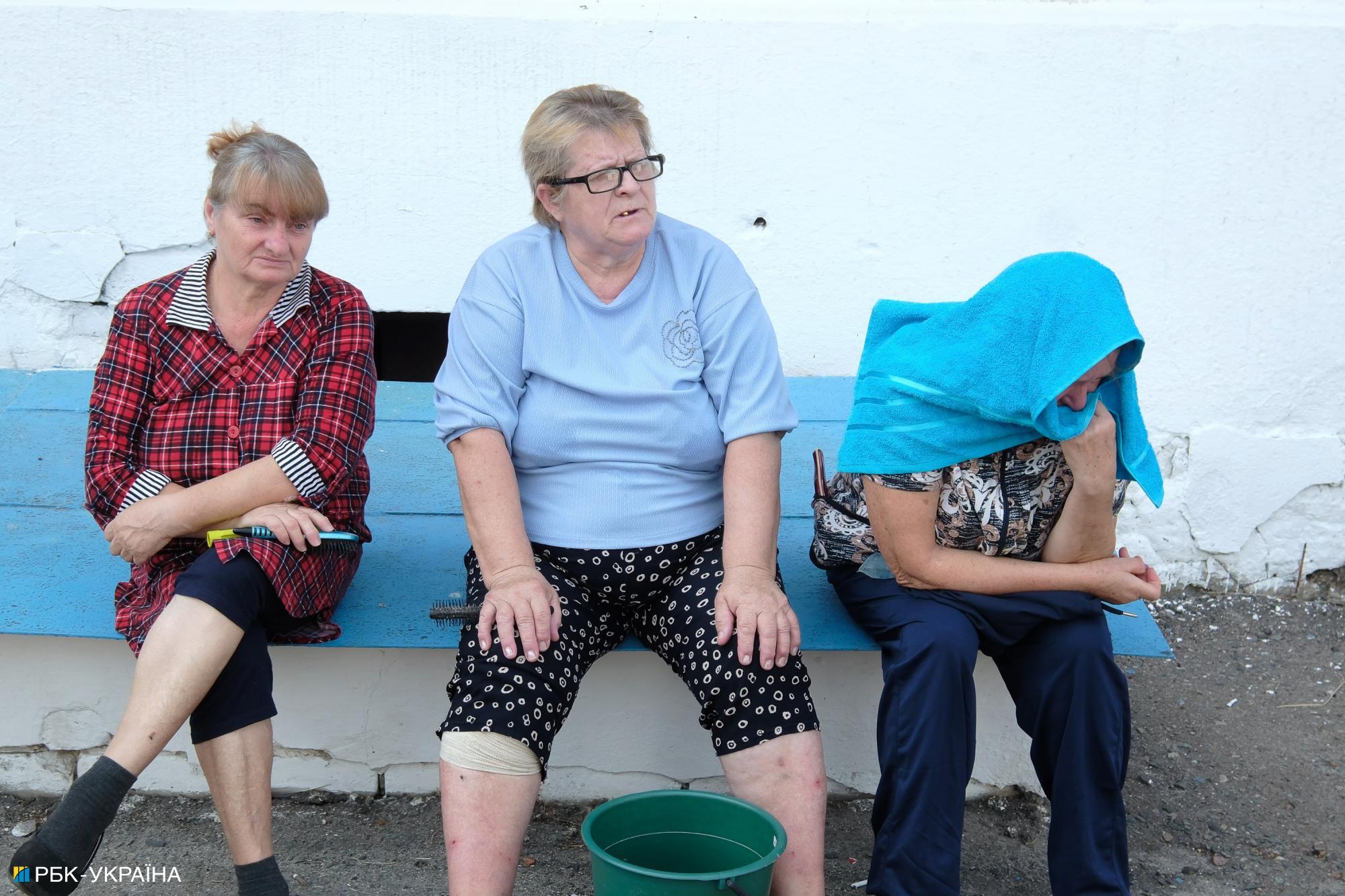 - We are not at war with you. We are neutral people.
- We are not at war with you. We are neutral people.
All three call the Ukrainian military good and friendly guys. As they admit, their government does not need them, so help from the Ukrainian Armed Forces is very welcome.
- We used to sit in the white house, four of us sitting there, and we shared one piece of bread for all of us.
Meanwhile, a movie screening is already underway at the entrance to the orphanage: a Ukrainian soldier is sitting with a laptop with a documentary in front of two old women, explaining what is happening on the screen. A man stands next to him, leaning on a bicycle. He has long black hair pulled back in a ponytail and makes comments without hiding his pleasure.
- What do you think of Putin?
- You know, ask me what I think of Stalin. He used to be normal, young, back and forth. I guess one should leave at the right time.
A young woman is sitting next to the entrance to the basement. She introduces herself as Lyudmila and, when asked how she is doing, tilts her head toward the empty basins and starts running her hands along the rim. “Not very well. Is this life?” No one has tried to evacuate her either, and the local authorities left us.”
- Our government is so-so. I want to see some kind of peace agreement between our president and the president of Ukraine. What kind of truce should it be?
- After all that the Russian troops have done to us, do you think we want to go for it?
- I think not.
Lyudmila is happy to be asked about the Ukrainian Armed Forces. She, like everyone else we talked to, praises the Ukrainian military and even thanks them for being there, which is something you wouldn't expect to hear from a Russian woman.
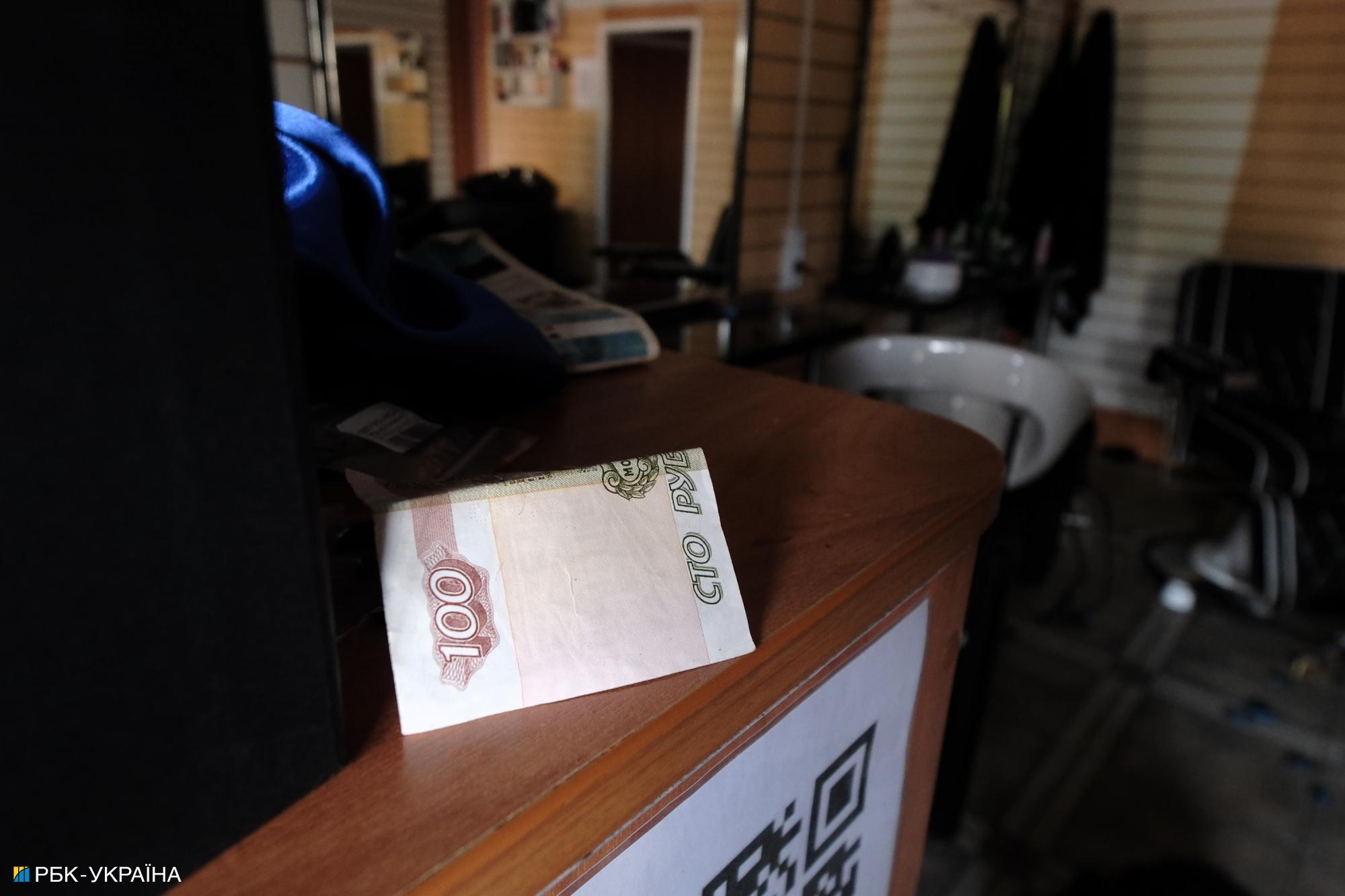 - I didn't expect such a good attitude. The guys (Ukrainian military - ed.) are great, I thank them. They bring us water and ask if we are not offended. We are glad to have them here. They bring us everything we need. It's just that they (Russian authorities - ed.) used to say that if Ukrainians came, they would kill everyone here. I don't know, I see people here.
- I didn't expect such a good attitude. The guys (Ukrainian military - ed.) are great, I thank them. They bring us water and ask if we are not offended. We are glad to have them here. They bring us everything we need. It's just that they (Russian authorities - ed.) used to say that if Ukrainians came, they would kill everyone here. I don't know, I see people here.
On the way back in the same armored vehicle, the journalists share their impressions. Most of them came from conversations with Russians from Sudzha. Few people in the third year of the war are impressed by the frankly infantile rhetoric of the majority of Russian residents. Sitting in their basements, afraid of being shelled by the guided aerial bombs from their planes, they continue to declare their apolitical nature. And some of the women said that Vladimir Putin does not know what is happening in their city at all, and through no fault of his own - he is simply being reported incorrectly.
As of today, there is no exact figure for the number of Russians living in the border towns - the village councils deal with the census, as the press officer says.
- They need to understand that we do not need their land and their people. We had to show Putin once again that he is an ordinary mortal, like his entourage. That the Ukrainian Cossacks, as they kicked Muscovy's ass, will do it again.
